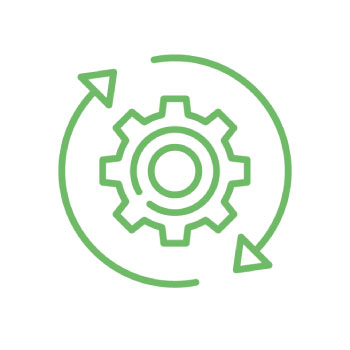Technical Assurance refers to the process of ensuring that technical systems, processes, or components meet specific standards, requirements, or expectations in terms of performance, reliability, safety, and compliance.
It is a critical aspect of various industries, including technology, engineering, healthcare, energy, and manufacturing. The primary goal of Technical Assurance is to provide confidence that systems or processes operate safely, efficiently, and effectively while adhering to regulatory, industry, or organisational standards.
Definition of Technical = adjective
marked by or characteristic of specialization: technical skill.Definition of Assurance = noun
the act or action of assuring someone or something: such as pledge, guarantee.
Source: https://www.merriam-webster.com/
Key Aspects of Technical Assurance
- Quality Assurance
This involves quality control and quality assurance measures to ensure that products or systems meet defined standards. This includes inspection, testing, and certification processes.
- Safey Assurance
Ensuring that systems and products are safe for their intended use. This is particularly important in the energy industry.
- Compliance
Technical Assurance activities ensure compliance with industry regulations, standards, and codes. This can involve audits, verifying documentation, accreditation processes and certifying technical parameters for metering equipment.
- Performance Verification
Verifying that a product or system meets its performance. This can include testing and analysis to confirm that performance criteria are met and are aligned with the standards required of the product or system.
- Reliability Assessment
Assessing the reliability of a system or product is essential, especially in critical applications like power generation and metering.
- Risk Management
Identifying and mitigating risks associated with technical systems is often part of Technical Assurance. This can involve identifying potential failure modes and taking steps to prevent or mitigate them.
- Documentation
Maintaining detailed documentation of design, testing, and quality control processes is crucial for Technical Assurance. These documents help in tracking compliance and ensuring that the product or system meets the necessary requirements. It’s often the case that these must also be renewed or reviewed on a regular schedule which means that there must be continual Technical Assurance activities.
The specific processes and methods used in Technical Assurance can vary widely the nature of the devices, systems and services being assessed.
This article looks in more detail at Technical Assurance of Metering (i.e. processes and devices and tolls) and the Technical Assurance of Parties (i.e. companies operating within the energy markets) and Processes (i.e. processes and systems used to make the energy markets work) as part of a performance assurance framework.
Technical Assurance of Metering
Metering companies are responsible for installing, maintaining, and enabling the reading of energy meters. These devices play a crucial role in accurately measuring consumption and enabling billing. Technical Assurance of metering companies involves ensuring the accuracy and security of meters, as well as compliance with regulatory standards.
Metering accuracy is paramount in energy markets. Consumers rely on accurate meter readings for billing, and discrepancies can erode trust and confidence. Companies rely on accurate data for settlement and balancing purposes and failures in this area can lead to financially and regulatory impacts.
Technical Assurance of metering refers to the set of measures, processes, and standards put in place to ensure the accurate, reliable, and secure measurement of energy consumption at the consumer level. It’s crucial for various reasons, including billing accuracy, balancing and settlement, grid management, consumer protection, and the overall efficiency of the energy markets.
It’s important to note that the standards for Metering accuracy may evolve over time to adapt to changes in technology, market dynamics, and regulatory requirements and may even be driven by risk versus cost / benefit appetites. Energy market companies, including suppliers, metering companies, and network operators, are expected to adhere to the rules and regulations to ensure the accurate measurement of consumption and to protect the interests of consumers and with this brings benefits for market participants in the form of confidence that they are complying successful and mitigating any risk to their financial position or reputation. Consumers can seek assistance or raise concerns with regulatory authorities if they believe that their rights are not being upheld.
- Meter Accuracy and Calibration
Ensuring that energy meters are accurate and regularly calibrated to maintain precision through regular testing and recertification.
- Meter Installation and Compliance
Setting standards for the proper installation of energy meters, including safety measures, adherence to regulations, and technical specifications.
- Data Security and Privacy
Implementing robust data security and privacy measures to protect customer’s consumption and personal data collected by meters.
- Meter Data Quality and Integrity
Ensuring that meter data is of high quality, free from errors, and consistent. Data integrity checks are performed to identify and rectify any discrepancies or anomalies in consumption data.
- Consumer Billing
Verifying that the data from meters is accurately used for customer billing purposes.
- Compliance with Market Codes and Standards
Adhering to market codes and standards, such as the Balancing and Settlement Code (BSC) and the Uniform Network Code (UNC), the Retail Energy Code (REC) to maintain consistency and compliance with regulations.
- Cybersecurity and Anti-Tampering Measures
Protecting meters from tampering, unauthorised access, and cybersecurity threats as covered in the REC and the Smart Energy Code (SEC). This includes sealing meters to prevent physical tampering and implementing security protocols to safeguard against cyberattacks.
- Meter Data Access and Consent
Defining how meter data can be accessed, by whom, and with the consent of consumers.
Technical Assurance of Parties and Processes
The companies involved in the supply chain between energy source, distribution and then delivery to consumers vary from energy suppliers, metering companies, data collection and aggregation through to shipping and distribution and we refer to them, in this instance, as parties. Part of the role of Technical Assurance involves regulatory oversight to ensure safety, infrastructure maintenance, fair competition, financial stability, and compliance with market rules for all aspects of that supply chain.
As part of a performance assurance framework, data can be collated to support monitoring and reporting that can, in turn, identify a weak or broken process, or a below target level of performance of a party or group of parties.
In these cases, Technical Assurance of parties and processes can be used to detect where industry is (and indeed where it is not) meeting the rules and regulations that are designed to facilitate the markets e.g. change of supplier processes. It can be applied as standard across all parties and processes, though it is most effective when intelligently collated information allows for Technical Assurance processes to:
- Define the problem in the process or performance level: identify the issues via reporting (regular or ad-hoc, qualitative or quantitative)
- Review the process or performance level: investigate using audit, interview, sampling and reporting
- Improve the process or performance level: workshop and recommend solutions or fixes through engagement with parties and in line with best practice and required performance targets.
- Verify the improvements made: through ongoing reporting, close monitoring post solution or fix implementation.
- Embed the solutions into BAU: ensure all appropriate change has been through the correct channels e.g. change management procedures, party integration and acceptance testing et al.
This particular type of Technical Assurance can be used in a very wide and varied format and generally consists of investigation and audit of a process or party, based on the specific area of interest or poor performance. The outcome leads to performance improvements and, potentially, process improvements and industry change. In turn this can lead to innovation and smarter working practices.
How Technical Assurance helps innovation and can act as a catalyst for change
Regulatory authorities and other central market bodies continuously monitor their markets to detect irregularities or non-compliance, using a Performance Assurance Framework (a structured set of processes and methodologies to assess, monitor, and ensure the performance of a system in achieving its objectives and desired outcomes. A systematic approach that helps in managing and improving performance over time). For example:
- Performance monitoring measures can lead to deeper investigations through Technical Assurance audits on processes that have been identified as problematic. It’s used as a tool to identify ‘why’ a process is not working as needed to enable innovation and process improvement.
- For example investigation into the quality of data held about a meter led to an industry wide process change whereby validation rules were applied to data fields, thereby ensuring only specific types of data could be entered against a particular meter.
- Energy market companies may be subject to audits, inspections, and performance assessments to ensure ongoing Technical Assurance of their individual systems and processes, and this includes assessment of the accuracy and quality of the tools and systems used to provide metering services.
We have seen issues arising that have no clear resolution, though are impacting on the quality of billing for consumers. In these cases there have been specific workgroups set up to further look at how to address such issues, this in turn has led to significant industry changes and process improvements and later innovations, such as the ability the ability to record meter installation details electronically on a handheld device as the meter is installed.
How is Technical assurance applied to energy markets?
This big picture is this:
- Consumers require accurate bills for the energy that they are consuming, the prices they pay should be competitive and allow for the consumer to choose, and the services they receive should be best practice and in line with rules and regulations.
- Companies require accurate, timely and quality data for balancing and settlement purposes.
- Companies operating within the energy markets need to be operationally ‘healthy’ enough in order to continue operating to the standards they are required to, enable investment into energy markets and infrastructure, and to be a viable operating business.
These things cannot happen if:
- The energy meters do not operate effectively and within centrally agreed and obligated parameters.
- The energy market design processes that are in place are ineffective or mismanaged.
- The energy market is using data that is of poor quality or is poorly controlled.
Challenges and Future Considerations, how Gemserv can help you.
Addressing these challenges and considering these future considerations will contribute to the continuous improvement and reliability of technical assurance in metering systems and Gemserv is ready, willing, and more than able to help support you through it, simply get in contact for a chat.
Areas we can help









Accuracy and Calibration
Challenges
Maintaining the accuracy of meters over time is challenging due to wear and tear, environmental factors, and component degradation.
Future Considerations
Implementing advanced calibration techniques, such as remote calibration and automated testing, can enhance accuracy and reduce downtime.
How Gemserv Can Help
We use our deep technical, regulatory and industry knowledge to provide insight on market activities and behaviours, offering guidance, consultancy, and support for you to develop robust and intelligent strategies, processes and step by step actions.
Data & Cyber Security
Challenges
The increasing reliance on digital and smart meters exposes data to potential cyber threats, leading to unauthorised access or tampering.
Future Considerations
Implementing robust cybersecurity measures, including encryption, secure communication protocols, and regular security audits, is essential for protecting metering systems.
How Gemserv Can Help
The growing scale and sophistication of cyber security breaches continue to rise, our extensive expertise across risk management, IT security and governance enable us to help organisations to ensure that the correct security processes and procedures are in place to protect themselves.
Meter Data Management
Challenges
Handling the massive volume of data generated by smart meters can be overwhelming, leading to data management challenges.
Future Considerations
Developing advanced meter data management systems that can efficiently handle and analyse large datasets, ensuring timely and accurate processing of metering information.
How Gemserv Can Help
We design digital solutions to help facilitate meter data management. Our solutions offer practical tools and techniques to better support market engagement, interoperation and understanding.”
Interoperability
Challenges
Integrating different types of meters and systems from various manufacturers can be challenging, leading to interoperability issues.
Future Considerations
Establishing industry standards and protocols to ensure seamless integration and communication between different metering devices and systems.
How Gemserv Can Help
Our in-depth understanding of emerging technology, data management and market arrangements support clients to design and deliver compliant and secure solutions within the myriad of market rules. We work with Governments, Regulators, Industry Bodies and Energy Companies throughout the UK and Ireland to design and manage metering arrangements so that they remain fit for purpose.
Remote Monitoring and Management
Challenges
Traditional meter reading methods may be inefficient and costly, particularly in remote or inaccessible locations..
Future Considerations
Adopting IoT (Internet of Things) technologies for remote monitoring and management, allowing real-time data collection, analysis, and control.
How Gemserv Can Help
Gemserv is proud to be playing a part in making sure these technologies work better for everyone as the Scheme Operator for the Smart Meter Device Assurance (SMDA) Scheme, originally established in 2015 after suppliers, meter manufacturers and funders of smart meter programmes identified the need for such a regime.
Regulatory Compliance
Challenges
Adhering to evolving regulatory requirements and standards can be complex and resource intensive.
Future Considerations
Staying abreast of regulatory changes and adopting flexible metering solutions that can easily adapt to new standards and compliance requirements.
How Gemserv Can Help
Gemserv technical experts provide support to Energy clients with their technology programmes, providing advice in Market Arrangements, Technical Assurance, and implementation planning.
Sustainability and Environmental Impact
Challenges
Traditional metering systems may have environmental impacts due to the materials used or energy consumption.
Future Considerations
Developing eco-friendly metering technologies, such as low-power sensors, recyclable materials, and energy-efficient designs.
How Gemserv Can Help
Gemserv has played a key role in some of the biggest initiatives to date in paving the way for a lower carbon world and we are now actively involved in work right across the sector, from the rollout of EV infrastructure to the development of heat networks. Our experience in working collaboratively with government, regulators, industry bodies and businesses will provide confidence and integrity.
Advanced Analytics and Machine Learning
Challenges
Extracting valuable insights from metering data can be challenging without advanced analytics tools.
Future Considerations
Integrating machine learning algorithms and analytics tools to identify patterns, anomalies, and trends in metering data, enabling predictive maintenance and optimisation.
How Gemserv Can Help
The world of energy has dramatically changed, with technology and innovation now carving out new opportunities which will transform how we approach and integrate more sustainable solutions. Our experts across key areas such as low carbon, data protection, cyber security, energy, and hydrogen are looking at not only how the future of energy will transform business, but also how it can make businesses more efficient, profitable, and future ready.
Customer Engagement
Challenges
Lack of customer awareness and engagement in metering processes can hinder the adoption of new technologies.
Future Considerations
Implementing customer education programs and user-friendly interfaces, empowering consumers to monitor and manage their energy consumption effectively.
How Gemserv Can Help
We believe that success is achievable and sustainable when we all work together, contribute our ideas, and collaborate. From wind turbines to home energy systems, energy solutions have a multitude of different stakeholders. Enabled by our deep energy insight, we facilitate value creation across the supply chain, supporting engagement in structured, transparent, and open ways. We make the market rules work better for everyone.




